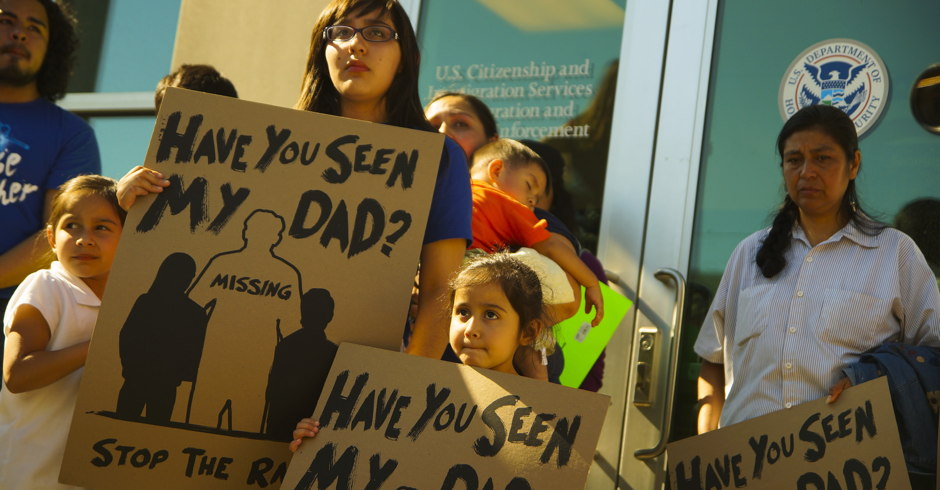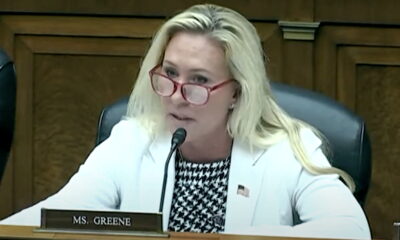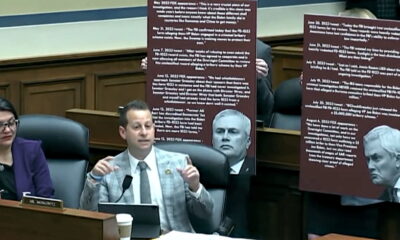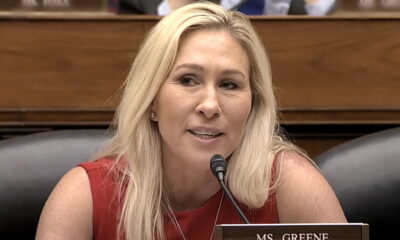BABIES IN CONCENTRATION CAMPS
Graphic: Recounts Regarding Conditions at U.S. Child Detention Centers

Democratic attorneys general in 17 states and the District of Columbia filed a lawsuit against the Trump administration, arguing that its family separation policy violated the due process and equal protection clauses of the Fifth Amendment.
Since the motion, the Trump administration has done little or nothing in the area of reuniting migrant families forcibly separated by the United States Government.
Now, a new harrowing account of conditions in the cages has been delivered to the court with approximately 900 pages of testimony describing in dire detail the inhumane conditions in detention facilities around the country.
The packet included feedback from child and immigration experts, state attorneys general offices, elected representatives, and human rights advocates.
Despite Trump’s executive order on June 20 aimed at “halting the separation practice,” hundreds of separated parents are still without their children.
Under Section 3 of the executive order, “Temporary Detention Policy for Families Entering this Country Illegally,” Trump declared: “The Secretary of Defense shall take all legally available measures to provide to the Secretary, upon request, any existing facilities available for the housing and care of alien families, and shall construct such facilities if necessary and consistent with law. The Secretary, to the extent permitted by law, shall be responsible for reimbursement for the use of these facilities.”
Recounts, like the ones below, are prime examples of the new statements issued to the court.
“For eight days I was held in a small room with over 60 men. We called it The Freezer because the air conditioning was so strong that we felt like ice. The men got sick inside and we had to sleep, use the toilet, and pass the time all in the same tiny room.” (“L. Doe”)
“[The children] did not have shoes or blankets in the detention center, and there were people in the cells that had to sleep standing up. They did not have enough to eat either, and could not drink the water, because of the chlorine they added to it … the incarcerated children were insulted – called named such as ‘animals’ and ‘donkeys.’ (Ludin Jimenez)
“The guards would wake all the girls up at 4 a.m. to count them by kicking on their mats. … G cried when she told me she kept hoping her mother would show up to take her out of that horrible place, but that never happened. … G overheard a girl asking to make a phone call to her family, but she was told they did not allow girls to make phone calls while detained.” (Alma Poletti, investigator for Washington’s attorney general)
“Prolonged stress (also known as toxic stress) can permanently disrupt the structure and function of a child’s developing brain. These changes can manifest as greater likelihood of adopting unhealthy behaviors (e.g., smoking and illicit drug use), increased risk of diseases (e.g., obesity, heart disease and cancer), depression and socioeconomic inequalities.” (Howard Zucker, the Commissioner of the New York State Department of Health)
Additional recounts noted in these court documents.
What is undeniably clear is the negative impact on children’s psyches is ever-lasting.
“Unless required to protect a child’s safety, forced separation is known to cause immediate and extreme psychological harm to both children and their parents, and the resulting cognitive and emotional damage can be permanent,” the court documents stated.
So, where are the children?
Enjoy this piece?
… then let us make a small request. The New Civil Rights Movement depends on readers like you to meet our ongoing expenses and continue producing quality progressive journalism. Three Silicon Valley giants consume 70 percent of all online advertising dollars, so we need your help to continue doing what we do.
NCRM is independent. You won’t find mainstream media bias here. From unflinching coverage of religious extremism, to spotlighting efforts to roll back our rights, NCRM continues to speak truth to power. America needs independent voices like NCRM to be sure no one is forgotten.
Every reader contribution, whatever the amount, makes a tremendous difference. Help ensure NCRM remains independent long into the future. Support progressive journalism with a one-time contribution to NCRM, or click here to become a subscriber. Thank you. Click here to donate by check.
 |




























